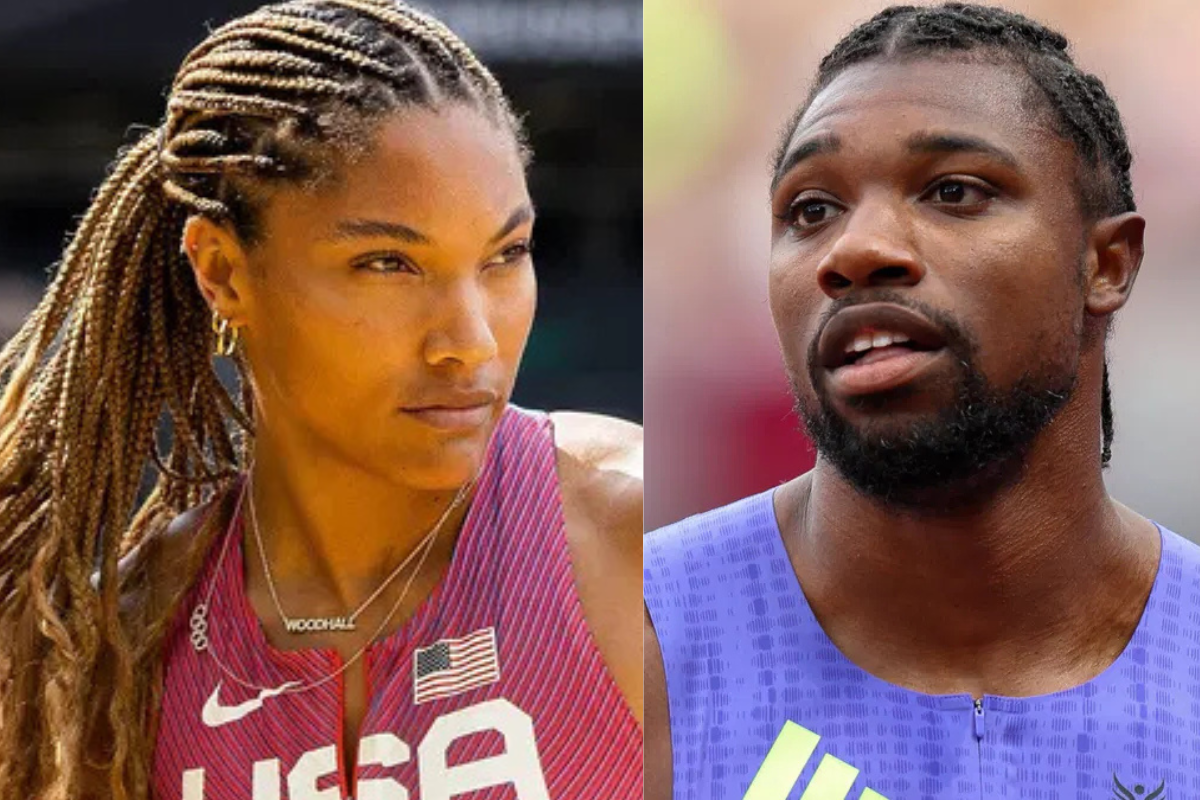Tara Davis-Woodhall Speaks on Same Issue Bothering Noah Lyles & Others After World Championships

Anxiety, stress, depression, you name it. The greatest epidemic haunting today’s generation is the silent decline of mental health. Millions suffer, yet most never seek therapy. Tara Davis-Woodhall knows that struggle well. Long before the medals, the Olympic spotlight, and her viral runway struts, she was just a star at the University of Texas, radiant on the outside but quietly breaking within. Beneath the charm lay a young athlete crushed by the weight of coaches’ demands, family expectations, fierce competition, and the relentless grind of elite sport. When life reached its breaking point, therapy became her lifeline. Today, even after reaching glory, Davis-Woodhall remains a vocal believer in treatment, not because it guarantees success, but because it saves souls.
Mental health is a ruthless demon; it spares no one. Whether you hold millions in cash or three Olympic medals, it can still devour you. Tara Davis-Woodhall, once called those dark moments a ‘curse,’ a heavy shadow clinging to her spirit. Today, instead of concealing her scars, she wields them as her greatest strength. During a conversation with NBC, the reporter asked the athlete for advice on what she would tell young people struggling with mental health issues.
“Yeah, I would say you can be happy and be in therapy at the same time. Therapy isn’t for people who are depressed and sad. Therapy is—sorry, one sec. Therapy is just for… see, they don’t like when you talk about it. They don’t like it when you talk about mental health. Therapy is for people who genuinely just want to talk. Like, if something is on your mind and you don’t have anyone to talk about it with, or you do have someone to talk about it with but their advice is not what you’re looking for, that’s where therapy is,” said the athlete.
ADVERTISEMENT
Article continues below this ad
When she faces a problem, she isn’t searching for her husband’s advice, her coach’s guidance, or a friend’s quick fix. Instead, she turns to someone trained to navigate the tangled web of thoughts and emotions, a therapist. That’s the person who helps her unpack the weight she carries, sort through the noise, and find clarity where confusion once lived. Talking about herself, the athlete revealed that, “I’ve been working with my therapist since I was in college, so we have a relationship. She’s known everything I’ve gone through. I’m very lucky and blessed to have found someone immediately that I can connect with.”
Davis-Woodhall has long been outspoken about the power of therapy, often crediting it as a key force in her journey. And she’s far from alone. A large U.S.-based systematic review and meta-analysis published in Nature Human Behaviors examined 419 randomized controlled trials involving over 53,000 participants. The findings were clear: therapy works.
ADVERTISEMENT
Article continues below this ad
From Cognitive Behavioral Therapy (CBT) to mindfulness and positive psychology, these methods have been shown to boost mental well-being for everyone, not just people with diagnosed conditions. Imagine it like this: your first therapy session helps you figure out what’s really going on in your mind. The second session helps you start mapping out a plan to tackle it. And as you keep going, you gradually learn how to handle it all, building tools to face life’s challenges with more clarity and confidence. Tara Davis-Woodhall understands the power of it, and she has been vocal about tackling it, and guess what, she is not the only one.
Read Top Stories First From EssentiallySports
Click here and check box next to EssentiallySports
Noah Lyles recalls mental health horrors in his life
“It was rough, it was rough, and that had to go a long way into you know, trying to find as much solitude and bringing in my circle as close as possible,” said Noah Lyles about his mental health episodes before achieving success. Throughout his life, the star athlete has faced challenging episodes of despair. In one of his X posts, he revealed, “I have Asthma, allergies, dyslexia, ADD, anxiety, and Depression. But I will tell you that what you have does not define what you can become.”
ADVERTISEMENT
Article continues below this ad
Lyles has never shied away from speaking about his mental health battles. In 2020, with the global pandemic limiting him to small, local competitions, he opened up to Olympics.com about the depression he faced during that uncertain period. It got to the point where I was just so deep, deep inside of myself that I was just putting on a face and doing what I needed to do. My family came down for Christmas and my Mum was really starting to worry about me.
He further added, “So that’s when I started ringing my personal therapist on a regular basis and it was going well for a time, but once coronavirus hit and the Black Lives Matter movement started happening, it created the perfect storm” That summer, Lyles began taking Zoloft, which lifted his spirits, but by the next track season, he had weaned himself off the antidepressant.
ADVERTISEMENT
Article continues below this ad
His meds did help him through the trials, but when the Games arrived, an unexpected foe emerged—his knee began to swell, threatening his Olympic dreams. At the end, the athlete finished in third place, earning the bronze medal with a time of 19.74 seconds. When Lyles was asked about his performance, he stated it was “boring” to get the bronze. “I didn’t win,” he continued, “Everybody wants to win when they come, right?” After the hubbub, Lyles suffered from depression for quite some time before making his way to the sports. Along with Tara Davis-Woodhall, Lyles also understands the importance of mental health. Regardless, what are your thoughts on their words?



